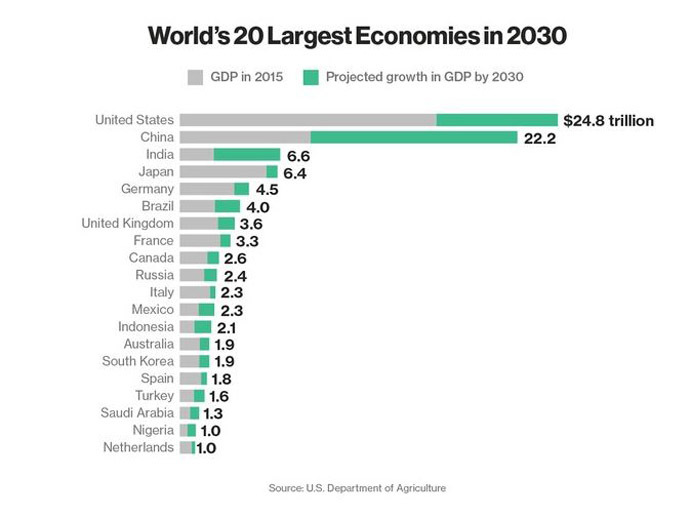World’s biggest economies in 2030

In 15 years time, the US won’t be the world’s largest economy, China’s economy will have doubled, EU countries like France and Italy will be stagnant, and emerging markets will explode, according to new projections from the US Department of Agriculture.
China's GDP will nearly overtake America’s by 2030, according to the latest data published by the US Department of Agriculture. The US will squeak by as the dominant economy with $24.8 trillion in annual output, but it will see its proportion of the world economy decline to 20 percent by 2030 from its current 23 percent share.
By 2030, India will be the world’s third largest economy, up from its current position at number eight. It will be followed by Japan in fourth place, then Germany, and Brazil at number six.

India will overtake the UK, France, Germany, and Japan in size. Growth in India will be driven by its large and highly skilled labor force.
Emerging economies in Asia and Africa are tapped to take off: Uganda will gain 18 spots in the next 15 years. Conversely, Europe’s powerhouse economies - France and Italy will drop three and two places, respectively.
Russia, which is expected to lose as much as 5 percent in GDP in 2015, according to JPMorgan, will drop two places by 2030 to the number 10 spot.
The small Caribbean island of Jamaica is poised to lose the most economic output, dropping 13 places in the ranking.
The data includes projections for 189 countries that together account for 99 percent of the global economy.












